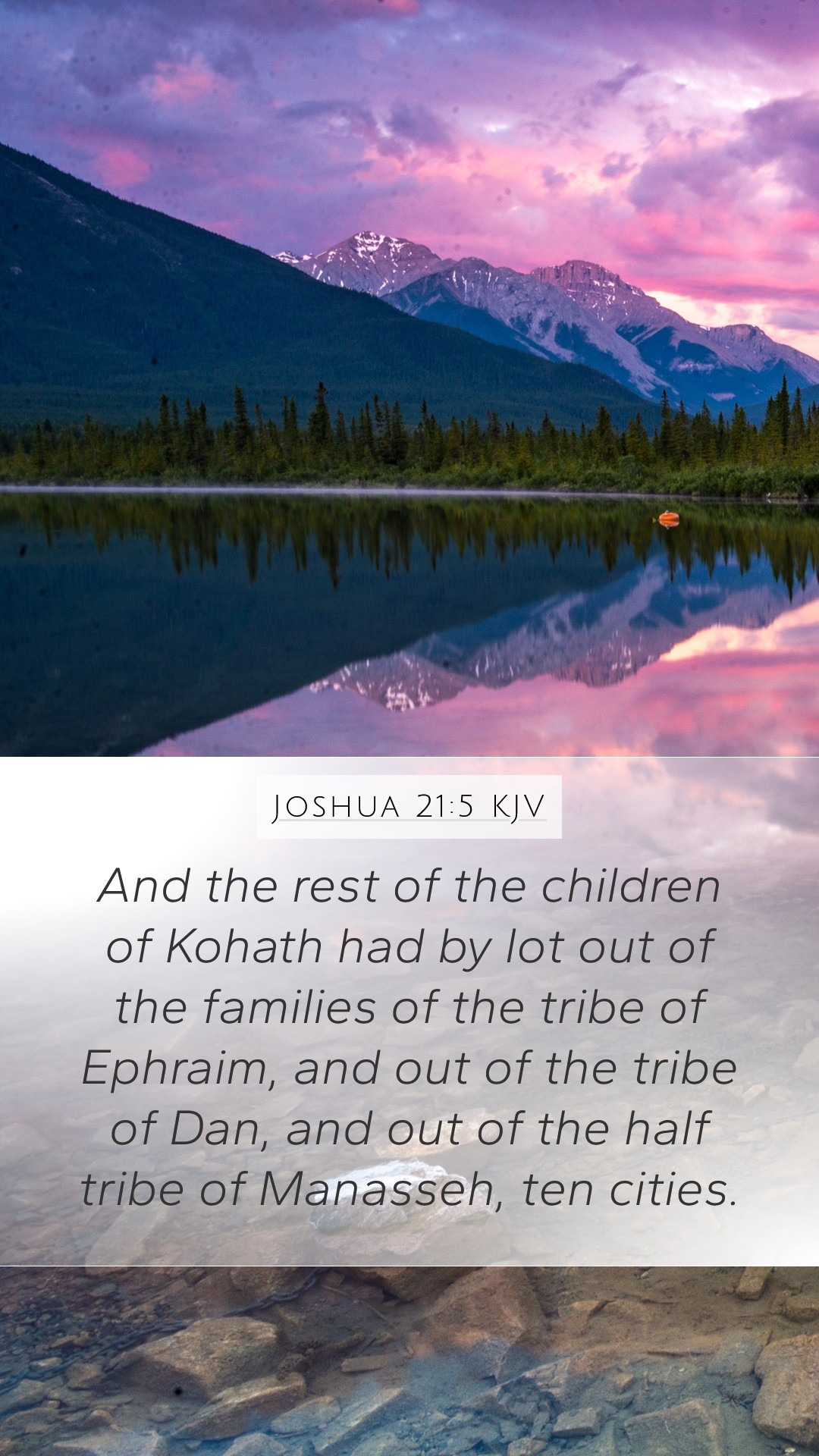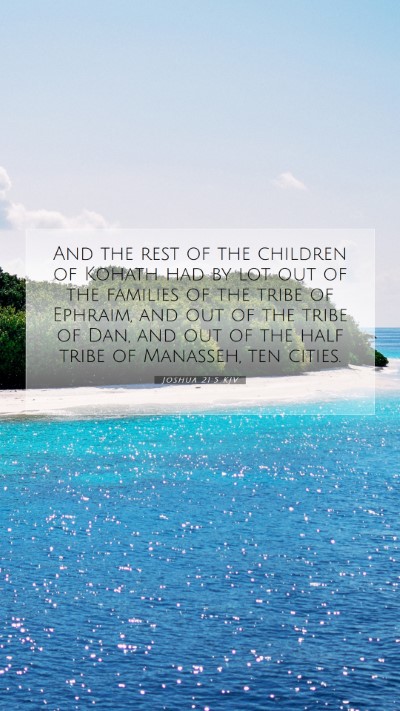Understanding Joshua 21:5: A Comprehensive Bible Verse Commentary
Joshua 21:5 states: “And the rest of the children of Kohath had by lot out of the families of the tribe of Ephraim, and out of the tribe of Dan, and out of the half tribe of Manasseh, ten cities.” This verse is part of a broader narrative concerning the distribution of cities among the Levites, highlighting important aspects of their inheritance and roles within the Israelite community. Below is an analysis of this verse, combining insights from respected public domain commentaries.
Key Themes in Joshua 21:5
- Distribution of Cities: The verse illustrates the systematic division of land among the tribes, emphasizing God’s meticulous plan in ensuring that the Levites receive their due portion. This reflects the larger context of divine order in the land of Canaan.
- Kohath’s Inheritance: Kohath, one of the sons of Levi, is mentioned, highlighting the specific allocation of cities among the Levitical clans. Kohathites had significant duties concerning the Tabernacle, and their cities served as both residential areas and places of spiritual responsibility.
- The Role of Lot: The reference to casting lots signifies reliance on divine providence in determining the inheritance, reinforcing the belief in God’s sovereignty over distribution and community leadership.
Bible Verse Meanings and Interpretations
The interpretation of Joshua 21:5 encompasses several layers of meaning:
- Biblical Exegesis: Matthew Henry notes that the Levites’ cities were a means for them to be close to the people they served, emphasizing their role as spiritual leaders and educators in Israel.
- Spiritual Significance: Adam Clarke indicates that these cities were to be a place of refuge, serving the dual purpose of community support and worship. This adds a layer of protection and dignity, reflecting God’s care for the Levites.
- Historical Context: Albert Barnes elaborates on the importance of the tribe of Ephraim, Dan, and the half-tribe of Manasseh in the distribution. Understanding their historical significance helps illuminate the social and political dynamics of the Israelite tribes.
Application of Joshua 21:5 in Daily Life
How does the message of Joshua 21:5 apply to our lives today? Here are some thoughtful applications:
- Understanding Our Role: Just as the Kohathites had specific duties and responsibilities, we too are called to understand our unique contributions within our communities, whether in work, family, or faith practices.
- God’s Order in Our Lives: This verse reminds us of God’s plan and order in our own lives. Trusting in His providence can bring peace as we navigate our personal inheritances and responsibilities.
- Community and Service: Just as the Levites were meant to serve, we are encouraged to engage in acts of service within our communities, fostering a spirit of generosity and support.
Related Bible Cross References
- Numbers 35:2-8 - Describes God's command regarding cities of refuge for the Levites.
- Exodus 28:1 - Parents of the Kohathites’ involvement in priestly duties.
- 1 Chronicles 6:54-81 - Lists of the cities assigned to the Levites.
- Deuteronomy 18:1-2 - Further instruction on the Levites and their inheritance.
- Hebrews 7:11-14 - Discusses the Levitical priesthood in relation to Christ.
Conclusion
In exploring Joshua 21:5, we uncover rich layers of biblical meaning and historical significance. The careful distribution of cities reflects God's justice and provision. As we study the scripture, may we glean insights that not only deepen our understanding but also encourage us in our faith and service to others.


